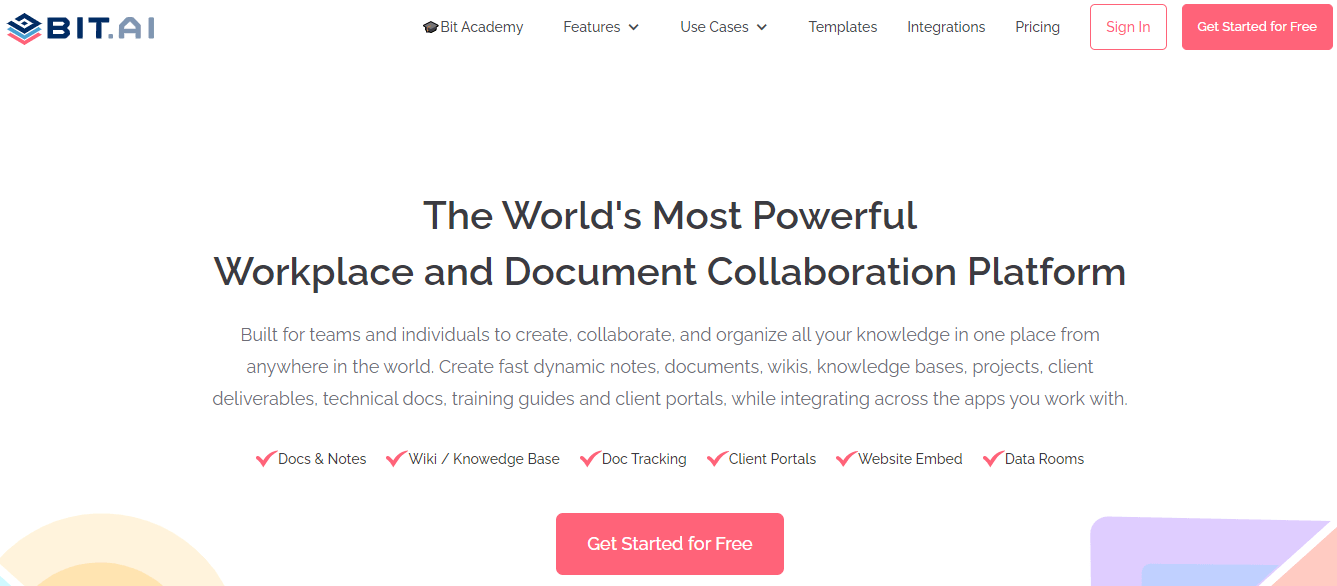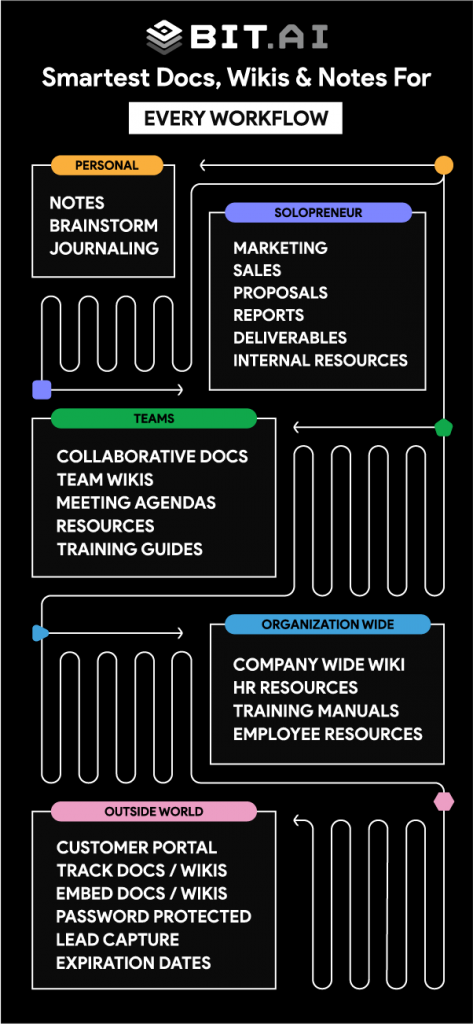Whether it is a multinational company that involves finance scaling billions, or a small start-up company that has just recently entered the business arena, any company or organization since time immemorial has always been, and will always be defined by the people that it is made up of.
Capable and efficient employees play a crucial role in the success of an organization. Their teamwork and communication is what pushes the functioning of the workplace.
Employees must therefore share not just thoughts and ideas, but also knowledge with other employees. This will benefit not only the team but the entire company.
Since knowledge-sharing is the way to go, it’s important that you to know your way around how it works, why it is important, and how to encourage it in the workplace.
So in this blog, we will discuss knowledge-sharing, its importance, and some great ways you can implement them in your organization! Let’s get started, shall we?
What is Knowledge Sharing? (The Definition)
Knowledge sharing as the name suggests is quite simply the process of sharing or to put it more accurately, exchanging information in any workspace between members of a team, between different teams, amongst individual employees, clients, etc. This information or knowledge can be around just about anything – classified, unclassified, explicit (from documents or procedures), and tacit (knowledge was acquired from experience).
Sharing knowledge and information in the workplace benefits both the person who shares it as well as the person who is a recipient of knowledge sharing. Not only is valuable information being shared to get work done, but it can also create a bond of understanding, one that makes the employees feel important and valued. All this improves company culture and helps employees hone their skills and get their work done.
Many organizations have processes that aid in the exchange of knowledge sharing across the workforce, but the importance of knowledge sharing is still so underrated. A good company is one that has a work culture that encourages employees to share what they know with one another instead of just hoarding it for themselves.
Why is it Important to Encourage Knowledge Sharing in the Workplace?
Knowledge sharing is crucial for the smooth functioning of any workplace. Here are some of the most prominent benefits of encouraging knowledge sharing in the workplace.
1. Boosts Employee Engagement
Encouraging employee engagement lays the foundation for a healthy and open company culture. With employees possessing knowledge, it can be a huge contribution to the organization. Knowledge sharing helps employees bond, improves their performance, and benefits the overall working of a company in the long run.
2. Promotes Employee Learning and Development
Learning by association or through social learning activities actually helps employees retain information better. Because of this, when members of a team share their knowledge, it’s more likely to be better utilized. Knowledge sharing, therefore, aids employee learning and development and produces a more skilled workforce.

3. Creates a Culture of Learning
When knowledge sharing is encouraged within a company, it provides a space for employees to learn. This is a great breeding ground for productivity because the more employees are equipped with the knowledge, the more efficient they become.
4. Helps Retention of Critical Tacit Knowledge
The thing about tacit knowledge is that it is gained through experience, it is not something you can attain from reading documents or procedures. Knowledge sharing is important in the workplace for the very reason that without it, valuable tacit information can be lost when certain employees leave the company.
Read More: 9 Effective Employee Retention Strategies You Need To Implement!
5. Makes Knowledge Accessible
Knowledge sharing in the workplace makes information accessible to everyone. This means that in the case of a team member that has to pull out of a project before it is completed, or in other circumstances where someone cannot make it, another person can promptly fill in and progress is not disrupted.
6. Imbibes a Sense of Purpose
An employee may possess a skill that might not be obvious but make a huge difference. The ability to share this with another employee and having them benefit from it makes a person feel important and can imbibe a sense of purpose. This is why knowledge sharing should be encouraged in the workplace.

7. Limits Skill Gap
Knowledge sharing helps employees support each other in acquiring new skill sets. This is especially important for new employees that have just started working. When a company creates an environment that encourages knowledge sharing, it limits the skill gap.
8. Saves Money
A company is made up of employees who may have worked for decades or just started last week. The time and effort it takes to limit the skill gap require a huge investment. This is why knowledge sharing should be encouraged and promoted within the workforce because not only does it help the employees, it will also save a lot of finances for any company in the grand scheme of things.
Now that you know the important role that knowledge sharing plays for an organization, here are some ways in which you can encourage knowledge sharing in the workplace.
How to Encourage Knowledge Sharing in the Workplace?
1. Create a Space for Knowledge Sharing
Whether it’s a large-scale corporate company or a small business started from home, it is crucial that whether you operate from an office space or online, the first step is to create a space to share knowledge. The space can be physical (a comfy corner where employees can grab a coffee and talk freely) or even virtual (a chat room or a Zoom call where discussions can be held freely).
What this does is create a medium where everyone feels relaxed and comfortable to share information and voice their opinions. Especially in today’s hustle and bustle work culture, unless space is quite literally created, employees will find it hard to communicate and share valuable information.

2. Make it a Norm and a Necessity
Knowledge sharing should be made into a norm within a company and in order to do so, the company culture must encourage it. If you think about it, knowledge sharing is in a way quite noble because it requires a person to open up and share information that they could otherwise keep to themselves. This is why it should be made a necessity.
By this, we mean making knowledge sharing a part of business or job description. This can be done by making it clear during the hiring process that employees are expected to contribute to the existing shared knowledge. This ensures that everyone is on the right foot from day one.
3. Incentivize Knowledge Sharing
Knowledge sharing may be inherently rewarding to some people. But everyone is different. It’s human nature to want to work harder when you know you will be rewarded in the end. So, it’s wise for a company or organization to include incentives with knowledge-sharing strategies.
This can be done in a variety of ways. Incentives can be anything from giving credit by displaying their names on projects or shouting them out during meetings. The key is to make a person feel recognized and important for the knowledge they shared. This will boost their desire to share knowledge further and will also give them a sense of purpose to do so.
4. Make Knowledge Sharing User-Friendly
With every employee’s schedule being jam-packed, nobody has time for complications that can be avoided. The best form of knowledge sharing is one that is user-friendly.
Let’s say software is used to share information, then make sure that it is a simple one that everyone can easily operate and use. One such user-friendly software is Bit.ai, a new-age knowledge management tool that helps employees collaborate, share, track, and manage all company knowledge in one place.
Bit allows you to create and store any workplace documents like company wikis, technical documents, software design documentation, training manuals, client portal material, best practices documents, etc. and bring all your company information under one roof. Multiple people can simultaneously collaborate on a Bit smart document in real time. It’s a great way to manage the project, brainstorm ideas, and most importantly, share knowledge.
Gather your team and create workspaces around projects, teams, departments, and clients to keep your documents, data, and knowledge organized. Pin important items to the top, add new members to a workspace, and take your content organization to the next level with hierarchical folders!
5. Lead by Example
As a manager, if you only direct employees to engage in knowledge sharing without practicing it yourself, then the whole thing becomes ineffective. So it’s important that you practice what you preach applies in the workplace as well. And being in a position of power, such as being a leader or manager, comes with influence, therefore you should always lead by example.
6. Implement a Knowledge-Sharing Process
In order for all the above ways of knowledge sharing to be realized, an actual knowledge-sharing process or strategy must be implemented within a company or organization. The process can vary from company to company because a strategy that works for one, might not be effective for another. It’s important to create a knowledge-sharing process that is tailored to your company, suits your purpose, and aligns with your ethos.
7. Reduce Barriers to Communication
Communication is key in order for any business or project to run smoothly. If there is a detachment between employees, it can lead to de-motivation and detachment. In order for knowledge sharing to freely occur, barriers to communication must be diminished. This can be done by encouraging meetups, it does not have to be formal. Bonding after hours can also be beneficial for everyone to develop a stronger bond.
8. Facilitate Team Building Activities
If you want employees to freely share their experiences and knowledge with each other, companies must avoid creating and harboring a competitive work environment. A common misconception is that competition will push individuals to strive harder, but in actuality, success is the result of a combined effort.
Instead, trying to incorporate team-building activities like company off-sites can make for an excellent way for everyone to get to know each other on a personal level. By being taken out of the stress of an office environment will allow employees to open up more and work together. This improves collaboration and communication between employees and also fosters a knowledge-sharing environment and culture.
Read More: 9 Virtual Team Building Games for Remote Employees!
9. Include Mentorship Programs
A really simple yet effective way of knowledge sharing is to have a mentorship program in place and make it a norm in the company. Senior employees can mentor juniors or bring in mentors to teach and guide them. A system like this not only ensures that important information is shared, but is also a cost-effective strategy to implement.
10. Encourage Intra Team Mixing
A company is made up of many diverse teams and departments all playing their part. When we talk about sharing information, we often set boundaries by only encouraging it within one particular field. In actuality, a person working in sales and a person working in tech might actually have valuable knowledge that can be beneficial for the other. So intra-team mixing should also be encouraged to facilitate a knowledge-sharing environment in the workplace.
Wrap Up
Knowledge sharing has a positive impact on every company. Not only is it practical in the sense that it saves time and money, but it also boosts morale, which creates a healthy company culture.
Knowledge sharing is not limited to just sharing information, it includes the sharing of valuable insights and skill sets that can be attained only through experiences and real-life business insights. Encouraging sharing of knowledge within any company or organization ensures benefits for both employees and the company itself.
Actively sharing knowledge and using a knowledge-sharing system like Bit, can help businesses improve their chances of success in the marketplace.
No matter how you approach knowledge sharing, the guaranteed result is a smarter, bonded, and cohesive team. So, implement knowledge sharing today and see if the results speak for themselves. That’s all, folks!
Further Reads:
Make Your Distributed Teams Work More Efficiently With Bit.ai!
Knowledge Management System Guide For Better Sales
Corporate Wiki Guide for All types of Businesses!
Employee Development Plan: What is it & How to Create it?
What is Cross-Functional Collaboration & How To Build A Team?
Top 10 Benefits of Teamwork You Must Know!
13 Tips to Empower your Employees
Boost Employee Morale with these Effective Tips!

Related posts
Bit.ai | Watch to Learn More
What is Bit.ai?
Bit.ai is an innovative AI-driven knowledge and Document Managment suite designed to empower knowledge workers by streamlining the creation of, documents, wikis, and notes. With an intuitive interface and seamless integration, Bit.ai acts as a versatile assistant to help you collaborate, generate, organize, and visualize your ideas effortlessly. Whether you are drafting a report, managing a project, collaborating with your team or clients, or brainstorming new concepts, Bit.ai brings intelligence and creativity to every aspect of your work process.



